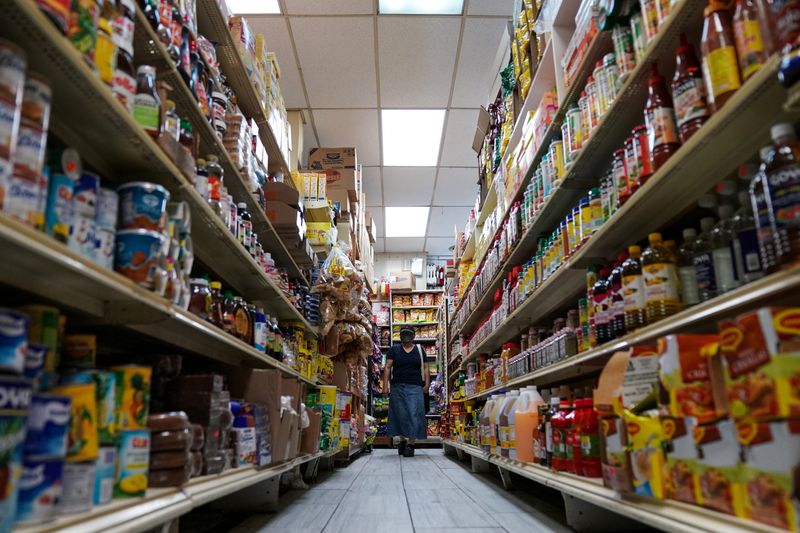(Reuters) – Pandemic-related disruptions to global supply chains and the knock-on effects of Russia’s war in Ukraine have combined to drive up prices of energy, commodities and basic necessities.
Below is a list of some of the actions taken by governments aimed at offering relief to hard-hit consumers and companies:
AMERICAS:
* U.S. President Joe Biden urged companies running gas stations, banks and cell phone services to lower consumer costs. In August, the government offered debt relief to former students and unveiled the $430 billion “Inflation Reduction Act”.
* Mexico’s president said he had agreed with companies to maintain prices of basic food items.
* Brazil’s oil giant Petrobras cut fuel prices multiple times this year. In July, the government slashed fuel taxes and raised welfare payments.
* Canada on Sept. 13 announced a C$4.5 billion ($3.28 billion) relief package.
* Chile in July announced a $1.2 billion aid plan.
EUROPE:
* European Union countries agreed to impose emergency levies on energy firms’ windfall profits and began talks on a possible bloc-wide gas price cap.
* Germany set out a 200-billion-euro ($195.18 billion) “defensive shield” which includes a gas price break and a cut in sales tax on the fuel. It also agreed earlier in September to nationalise gas importer Uniper and announced a 65-billion-euro package for consumers and businesses.
* Ireland dipped into one of Europe’s few budget surpluses to fund higher-than-usual spending hikes and tax cuts, and ease energy costs.
* Hungary will probably be able to maintain a partial cap on household energy bills next year, Prime Minister Viktor Orban said.
* France is working on the full nationalisation of nuclear energy group EDF. It will also cap household power and gas price increases at 15% next year, and in August passed a 20-billion-euro relief bill.
* Denmark on Sept. 23 agreed on a package worth 5.05 billion Danish crowns ($662.88 million), adding to previous measures.
* Britain will cap wholesale electricity and gas costs for businesses at less than half the market rate. In September, it announced a plan to help households.
* Greece will pay out a further 1.1 billion euros in power bill subsidies in October.
* Norway agreed to spend 3 billion Norwegian crowns ($277.77 million) to help businesses. It is also helping households with electricity bills.
* Italy on Sept. 16 approved a package worth some 14 billion euros.
* Poland will spend over 30 billion zlotys ($6.02 billion) to freeze power prices. It will also raise the minimum wage twice next year.
* The Czech Republic will cap electricity and gas prices next year.
* Portugal cut VAT on electricity and provided one-off payments for workers, families, and pensioners.
* Spain will slash VAT on gas to 5% from 21%, from October.
* Croatia will cap electricity prices from Oct. 1 until March.
* Finland and Sweden offered liquidity guarantees to power companies.
ASIA:
* Japan will help utilities secure liquefied natural gas amid a surge in spot prices. It is also due to present another package in October, adding to a record minimum wage hike and a $103 billion relief bill unveiled in April.
* Vietnam plans to cut the special consumption tax and VAT on fuels.
* Thailand on Sept. 13 extended a diesel tax cut and energy subsidies and raised the minimum wage.
* India on Sept. 8 restricted exports of rice to boost supply and calm local prices. It has also set up a panel to review pricing of locally produced gas.
* Indonesia’s government on Sept.14 ordered regional heads to keep food inflation below 5%.
* Malaysia expects to spend a record 77.3 billion ringgit ($16.68 billion) in aid this year.
AFRICA AND MIDDLE EAST:
* Tunisia’s government on Sept. 15 signed a deal with a major labour union to raise public sector pay and the minimum wage.
* Egypt on Aug. 30 announced a package to clear a backlog of goods in ports and help reduce commodity prices.
* South Africa in July announced a cut in the pump prices of fuel.
* Botswana in July cut VAT by 2% for six months.
* Turkey in July raised its minimum wage by about 30%, adding to the 50% rise seen at the end of last year.
* Saudi Arabia and the United Arab Emirates in July raised social welfare spending.
($1 = 1.3721 Canadian dollars)
($1 = 1.0247 euros)
($1 = 7.6183 Danish crowns)
($1 = 10.8003 Norwegian crowns)
($1 = 4.9831 zlotys)
($1 = 4.6350 ringgit)
(Compiled by Olivier Sorgho; Editing by Catherine Evans and Maju Samuel)
